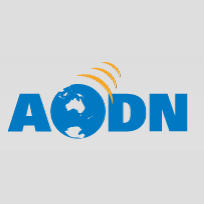Brief description
Characterization of the traditional fisheries of the PNG Treaty villages (Torres Strait and Papua New Guinea) - AFMA Project RR2012/0813. The main objectives of the project were to: 1. Assess the status of marine resources exploited on the PNG side of the Torres strait area. 2. Understand the role marine resources have within the livelihood portfolios of coastal villages in the WP of PNG Understand how the socio-economic conditions of these communities drive exploitation patterns of marine resources. 3. Provide background information on the characteristics of PNG Treaty villages for the CSIRO/NERP project to design livelihoods typology and contribute information/data to the scenario planning workshops and FGDs in vulnerable communities. The Western Province, Papua New Guinea (PNG), has some of the most important and diverse marine ecosystems, with mangroves, seagrasses, and coral reefs of global significance as part of the Coral Triangle. Goods and services from these ecosystems provide coastal communities in the Province for subsistence, cash income and cultural identity. As a border region (with Indonesia to the West and Australia to the South), marine resources have been traditionally traded and shared with neighboring countries. The dynamics of exploitation of marine resources are thus complicated by sharing and trading agreements with bordering countries, increasing the complexity of monitoring and managing these diverse marine ecosystems and their resources. Human impacts have likely degraded these ecosystems in the last few decades. Population growth and internal migration to the area are increasing the exploitation of local marine ecosystems. Mining and other future resource extraction and infrastructure projects in the Province will likely increase adverse pressures on marine resources. Climate change will also present coastal communities in the region with challenges in the next future. Even considering the importance of these resources and the above mentioned threats, there is a lack of information on the overall status of the traditional artisanal and subsistence fisheries for species such as coastal, estuarine and reef finfish, tropical rock lobster, beche-de-mer and trochus (AFMA 2005). A recent survey in the PNG treaty villages found that one of the main issues within the communities was overexploitation of marine resources and the need for sustainable fishing practices (Roe 2010). To address this concern, and provide baseline information for future co-management arrangements at a cross-jurisdictional level, baseline information on the socio-economic and ecological characteristics of the traditional fisheries is required. The overall aim of the project is to assess the status of exploited marine resources in this border region and understand the role marine resources have for the livelihoods and food security of coastal communities in the Western Province of PNG and how socio-economic conditions of these communities drive exploitation patterns of marine resources. The final outcome from this research will provide a clear understanding of the overall multi-sectoral cross-jurisdictional exploitation of marine resources in the Treaty area. Contribution from this project can have a positive multi-scale impact on the sustainable use of shared stocks. Understanding both the socioeconomic and ecological context of marine resources exploitation is paramount to support sound management decisions and the success of any future management and development initiatives. Management agencies and communities in the Treaty area will benefit from information currently lacking to support their management decisions. Collected information has the potential to be used in future as a framework for co-management arrangements at a cross-jurisdictional level. This information will also help management and aid agencies to better allocate resources in future development projects.Lineage
Maintenance and Update Frequency: asNeeded
Statement: Metadata collated as part of the Torres Strait Resource Inventory Project 2013.
Notes
CreditAFMA - Funding (Project RR2012/0813)
Credit
S. Busilacchi
S. Busilacchi
Credit
J. Butler
J. Butler
Credit
J. Posu
J. Posu
Data time period: 2012-05 to 2014
text: westlimit=142; southlimit=-11; eastlimit=143; northlimit=-9
Subjects
Earth Science | Agriculture | Agricultural Aquatic Sciences | Fisheries |
Earth Science | Human Dimensions | Environmental Governance/Management | Land Management |
Marine Features (Australia) | Torres Strait, QLD |
Torres Strait Research Repository 2013 |
biota |
economy |
society |
User Contributed Tags
Login to tag this record with meaningful keywords to make it easier to discover
Identifiers
- Local : Anzlic Identifier: ANZCW0306014246
- Local : Marlin Record Number: 14246
- global : e07dedf0-f7d6-77ef-e043-08114f8c67d3


